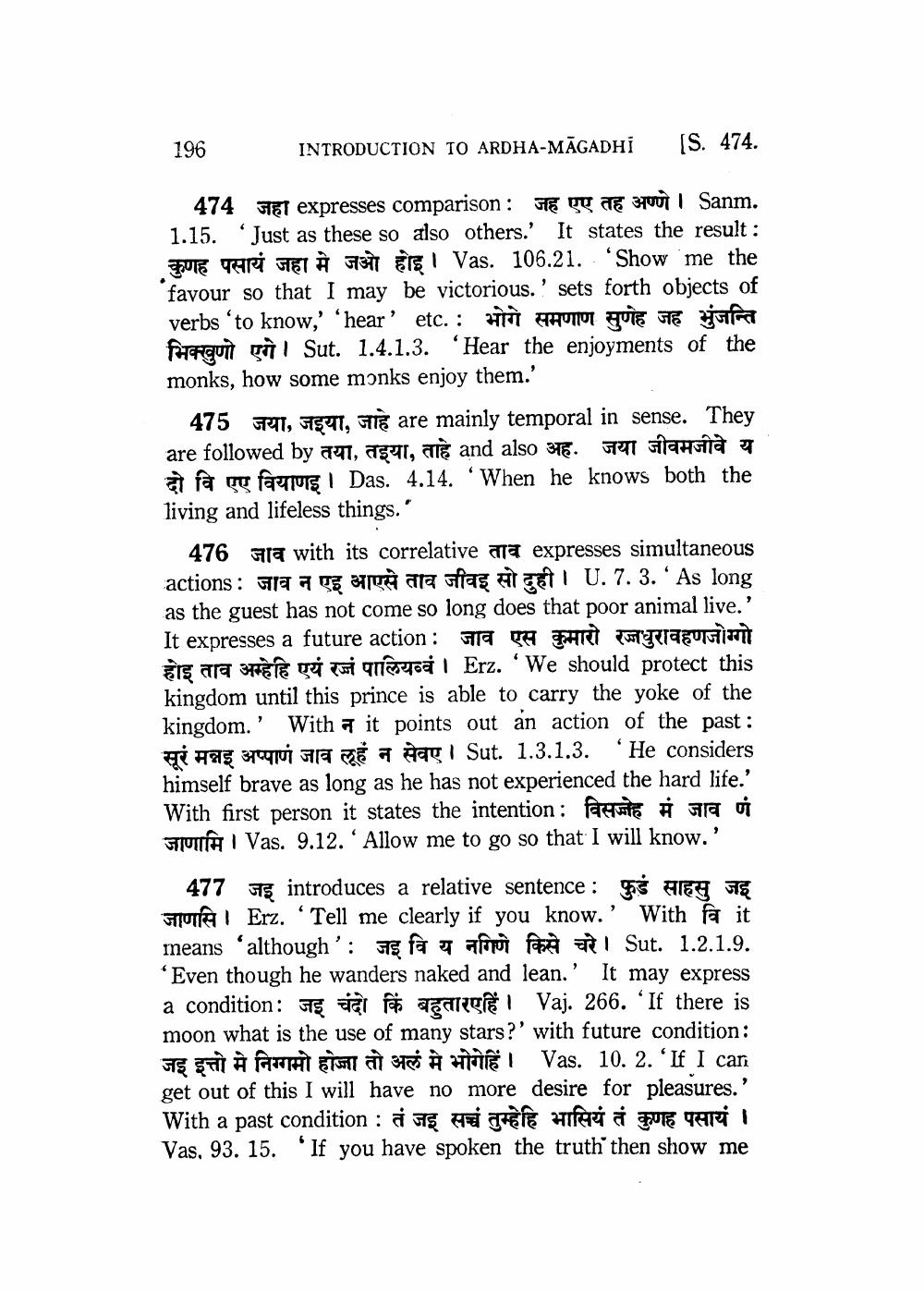________________
196
INTRODUCTION TO ARDHA-MĀGADHI
(S. 474.
474 जहा expresses comparison : जह एए तह अण्णे | Sanm. 1.15. Just as these so also others. It states the result: BU TARİ FET À FT EE! Vas. 106.21. 'Show me the favour so that I may be victorious.. sets forth objects of verbs 'to know,' 'hear' etc. : IT FHUNOT MUTE ER FFCUTI i I Sut. 1.4.1.3. 'Hear the enjoyments of the monks, how some monks enjoy them.'
475 PTT, 51, are mainly temporal in sense. They are followed by a4, 75, die and also SE. J Stahsia
fa ro farinusi Das. 4.14. “When he knows both the living and lifeless things.'
476 Fra with its correlative ara expresses simultaneous actions: Ala 7 gg e ata ofas ACETI U. 7. 3. ' As long as the guest has not come so long does that poor animal live.' It expresses a future action : जाव एस कुमारो रजधुरावहणजोग्गो Els are per te cui questa | Erz. 'We should protect this kingdom until this prince is able to carry the yoke of the kingdom.' With a it points out an action of the past : Fri has 379 Al a day 1 Sut. 1.3.1.3. He considers himself brave as long as he has not experienced the hard life.' With first person it states the intention: विसज्जह मं जाव णं TUTH I Vas. 9.12. ' Allow me to go so that I will know.'
477 जइ introduces a relative sentence : फुडं साहसु जइ HTRA I Erz. 'Tell me clearly if you know.' With fe it means “although': Jeg fã garo I Sut. 1.2.1.9. “Even though he wanders naked and lean.' It may express a condition: Pao age I Vaj. 266. “If there is moon what is the use of many stars?' with future condition: GTE STIT À FATTHETISHI NISTA À I Vas. 10. 2. 'If I can get out of this I will have no more desire for pleasures.' With a past condition : 7 METERE HAT QUE TARII Vas, 93. 15. 'If you have spoken the truth then show me




